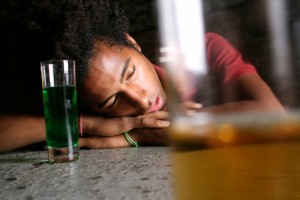(ThyBlackMan.com) From the outside looking in, addiction is a choice. A common misconception is that those suffering from addiction essentially made the choice to start using the substance and therefore, should have the ability to stop. Unfortunately, it’s not that simple. Though the initial use (and subsequent uses) of the substance was by choice, once it’s reached a level of dependency or addiction, the decision to stop is not cut and dry.
Don’t Put Off Getting Help
If you or someone you know is struggling with addiction you should never put off the need to get assistance. The prolonged use of harmful substances like drugs or alcohol can begin to wreak havoc on your physical and mental well-being. Though there are several avenues for getting help with addiction, many find it beneficial to participate in an addiction recovery program, such as those offered by Hotel California by the Sea, one of best forms of addiction treatment California has to offer.
Such programs provide an escape from outside influences and allow participants to focus on treating the physical and mental effects of  addiction. Through extensive therapeutic measures, trained staff assist participants in kicking the habit while also equipping them with the tools they need to maintain a sober life.
addiction. Through extensive therapeutic measures, trained staff assist participants in kicking the habit while also equipping them with the tools they need to maintain a sober life.
What Causes Addiction?
In order to get help or support someone as they strive to get help with addiction, it helps to first understand how it is caused. Medical professionals state that there is a link between the continued use of addictive substances and the pleasure center of the human brain. As a person continues to utilize the substance, it causes physical changes within nerve cells called neurons.
As the user continues to take the substance their bodies become “tolerant” to the dosage. Their brains no longer get the same pleasure signals. This then provokes the user to consume more of the substance. Medical experts state that as the tolerance increases it eventually leads to addiction in which the body “needs” the substance to function.
Risk Factors of Addiction
Risk factors are essentially physical and environmental factors that increase the likelihood of an individual becoming an addict. Though anyone can easily become addicted to a substance or addictive activity (i.e. sex, gambling, and gaming), here are a few risk factors that could increase the likelihood of addiction:
- Family History – If addiction runs in your family, you have an increased chance of developing an addiction yourself.
- Gender – According to studies, men are more likely to develop an addiction than women.
- Mental Illness – Those who tend to suffer from mental illness, such as depression, anxiety, or bipolar disorder have a higher risk of using and becoming addicted to substances.
- Pressure – Adults and children alike face peer pressure. Those who often want to “fit it” are more likely to become addicted to substances.
- Type of substance – The type of substance can also determine whether you will develop an addiction. While substances like marijuana are considered “gateway drugs” (drugs that eventually lead to the use of stronger drugs), harder substances like crack, heroin, or cocaine are fairly easy to get addicted to.
- Your Body – The way your body processes addictive substances can also determine whether or not you become addicted. For example, with alcohol, those who tend to need a large quantity of alcohol to get “tipsy” are at higher risk of becoming addicted.
Addiction affects everyone differently. Though you may have assumed that this is a disease that can be treated with sheer willpower, it actually takes a lot more. As the brain and body have become dependent upon the substances, it requires not only the removal of the substance from the body, but also a “retraining” of the brain to cure the underlying cause. If you or someone you know seems to be struggle with substance abuse or addiction, don’t put off the need to get help. Reach out to a reputable rehab facility and learn about therapeutic programs and processes that can aid you on your road to sobriety.
Staff Writer; Dewayne Poole

















Leave a Reply